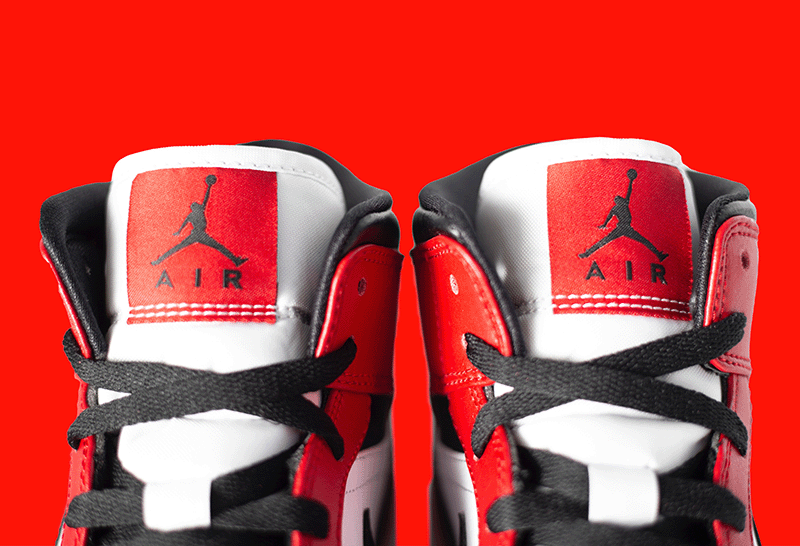What sets you apart from the competition?
Brand positioning is how you differentiate yourself from other companies in your niche. It determines how your audience identifies and connects with your brand. Your positioning tells your customers why they should pick your brand over your competitors. And it influences everything your business presents in the market.
Think about it…
Successful companies have one crucial thing in common: a strong brand. Effective brand positioning is how you get people to remember your brand.
Let’s explore 3 brand advertising examples based on companies that got their brand positioning right and accentuated their differentiation to the consumer.
1. Niche-Focused Positioning
If you operate in an industry oversaturated with competitors, it can be particularly difficult to stand out. Niche-focused positioning works to differentiate your brand from the competition and requires you to provide a service or product that’s not popular or in high demand.
You cannot talk about niche-focused brand positioning without mentioning Tesla Motors Inc. Tesla took a unique approach to establish itself in the auto car market by carving out an entirely new niche.
Unlike its competitors, Tesla didn’t break into the market by developing a relatively affordable car that they could mass produce. Instead, they focused on creating a distinct market for themselves by offering something that didn’t exist in the electric automobile market: luxury, long-range electric cars.
Tesla doesn’t just sell cars; they also sell new technologies since they also build the unique infrastructure necessary to support the operation of their vehicles. Essentially, betting on Tesla Motors is betting on the best technology in the industry.
Let’s look at how they marketed the Tesla Model S; unlike other electric vehicles, the Model is “designed from the ground up.” With the automobile billed to be the safest, and notably, the “most exhilarating saloon-car you can find on the road.” With unrivaled performance owing to Tesla’s distinct, all-electric power train… to make your highway driving not only safer but stress-free.”

2. Celebrity-Driven Positioning
Positioning by celebrity endorsement associates the image of a brand with that of a celebrity. While this is an expensive route to take, celebrities come with an already established fanbase, and fans tend to have a strong emotional connection to them which can transfer to a brand and its products.
Take Nike, for example. As a company, it’s excellent at what it does: the design and manufacture of top-notch sports shoes and equipment. But where the company truly excels is in marketing.
Named after the Greek Goddess of speed, strength, and victory, Nike built itself as a brand for winners by associating with winners. Nike is well-known for its consistent use of high-profile celebrities as brand ambassadors. One of the most lucrative of these collaborations being Michael Jordan for Nike, a seemingly perfect fit.
By associating with Michael Jordan, Nike has become synonymous with the very traits he was known for — athletic excellence, power, and determination. The company taps into their customer’s emotions inspiring them to find their own “greatness.” In other words, Nike sells a dream.

3. Value Positioning
In the mind of the consumer, price, and quality go hand in hand. Value positioning focuses on creating prestige, so customers desire a product regardless of its price. Customers believe the product is the best choice simply because of the reputation of the brand.
Apple Inc. is a perfect example of value/luxury positioning. People buy iPhones because it makes them feel special. Why? Because when you buy the iPhone, you’re not just buying a phone. You’re buying a status symbol. And Apple knows this with its unapologetic premium pricing. Selling social status has to be the king of all marketing strategies.
Because of such skillful positioning, the Apple brand enjoys massive customer loyalty. People have a profound emotional connection to the brand — using Apple products brings real enjoyment and pleasure.
Apple users identify so strongly with the brand that they align themselves with its messaging. By purchasing Apple products, they “Think Different” and are as innovative, imaginative, and creative as the brand they hold in such high esteem.
It’s no wonder that Apple has such a strong following. They are more than a company that sells phones and computers; Apple is a community.

Think Different, Brand Different
Again, “What sets you apart from the competition?” In a crowded marketplace, how you position your brand determines how people perceive and approach your brand. You need to state who you want your customers to be and why they should choose you.
Want to define your brand positioning?
